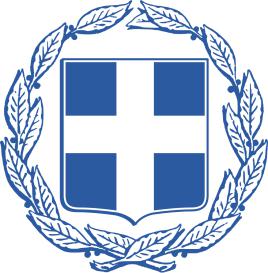

The Greek Republic(Greek:Ελληνική Δημοκρατία]), commonly known as Greece(Greek: Ελλ≤δα), is a republic country located in the southeast corner of Europe and the southern tip of the Balkans. The whole country consists of the Peloponnesian Peninsula in the south of the peninsula and more than 3000 islands in the Aegean Sea. Greece is a strategic area connecting Europe, Asia and Africa. It is adjacent to Albania, Macedonian and Bulgaria from the northwest to the north, and Turkey borders on the northeast. It is surrounded by Aegean Sea, Mediterranean Sea and Ionian Sea from east to west.
The history of Greece can be traced back to ancient Greek civilization, which is usually regarded as the cradle of Western civilization. Greece is also the birthplace of western philosophy, Olympic Games, western literature, history, political science, democratic system, scientific and mathematical principles, and Western drama. Greece's cultural and technological progress had a great influence on world history and spread to the eastern and Western world through Alexander the great and the Roman Empire. The history of contemporary Greece is usually calculated from the establishment of the Greek Kingdom after the victory of the Ottoman Empire in 1830.
Greece is located in the south of the Balkan Peninsula in Southeast Europe. It borders Bulgaria, Macedonian and Albania in the north, Turkey in the northeast, the Ionian Sea in the southwest, the Aegean Sea in the East, and the African continent across the Mediterranean Sea in the south. The total area of Greece is 131957 square kilometers, of which 15% are islands, there are more than 1500 islands with a total area of 25000 square kilometers. The coastline is about 15021 km long and the width of territorial sea is 6 nautical miles.
Greece is a founding member of the United Nations, a member of the European Union and NATO. It is the largest economy in the Balkans.
Greece is one of the weaker developed countries in the European Union. Its economic foundation is weak and its industrial manufacturing industry is relatively backward. Shipping industry is developed, and tourism and overseas remittance are the three pillars of Greece's foreign exchange income. Agriculture is relatively developed, and the industry is mainly food processing and light industry. In 2013, the GDP of Greece was 182.05 billion euro.
There are many mountains in Greece, three-quarters of which are mountains, and there are lowland plains along the coast. In Greek mythology, Olympus is regarded as the residence of the gods, with an altitude of 2917 meters, which is the highest peak in Greece. The lowest sea level in Greece is 0 M. Pindus mountains run through the western part of Greece, and the central part is the Thessaly basin.
